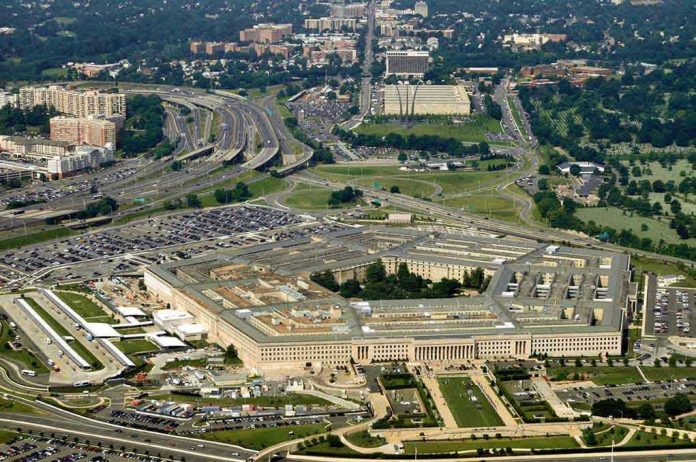
In a world where economic tensions are brewing, China’s retaliatory sanctions against US defense firms over Taiwan arms sales have set the stage for a geopolitical drama of epic proportions.
At a Glance
- China has imposed sanctions on 13 US defense firms in response to arms sales to Taiwan.
- The sanctions target both corporate entities and individual executives.
- The US maintains its commitment to Taiwan’s defense, criticizing China’s actions.
- The geopolitical stakes are high, with implications for global security and industry.
China’s Retaliation: Sanctions on US Defense Firms
China’s recent enactment of sanctions against US defense firms marks a significant escalation in the ongoing geopolitical rivalry over Taiwan. On December 5, 2024, China targeted 13 US defense companies, including Trelleborg Engineering, BRINC Drones, and Shield AI, in response to the US’s continued arms sales to Taiwan. These measures include asset freezes, transaction bans, and travel restrictions for executives, extending to Hong Kong and Macau. The sanctions are legally grounded in China’s Anti-Foreign Sanctions Law, aiming to deter US support for Taiwan.
The sanctions reflect China’s strategic resolve to counter perceived threats to its sovereignty. The message is clear: Beijing will not tolerate foreign interference in its affairs, particularly concerning Taiwan. However, these sanctions could have far-reaching consequences, potentially disrupting global supply chains and heightening tensions in the Taiwan Strait. The stakes are high, with both sides signaling readiness for future escalation.
US Response and Continued Support for Taiwan
Despite China’s aggressive stance, the US remains committed to supporting Taiwan’s self-defense capabilities. The Biden administration had initiated significant military aid packages, and under the Trump administration, these commitments have only strengthened. The National Defense Authorization Act for Fiscal Year 2025, passed in 2024, further solidifies this support.
The US government has criticized China’s coercive measures, underscoring the importance of maintaining regional stability. Diplomatic and military tensions between the US and China are at a peak, with both nations leveraging their strategic strengths. The US’s commitment to Taiwan is not merely about arms sales but also a broader strategy to curb Chinese influence and aggression in the Indo-Pacific region.
Implications for Global Security and Industry
The sanctions’ implications extend beyond immediate economic impacts. For US defense firms, losing access to Chinese markets and financial systems could disrupt business operations and global supply chains. These companies now face reputational risks and potential challenges in technology transfer and collaboration.
On a strategic level, these developments could lead to an arms race in East Asia, with heightened risks of military confrontation in the Taiwan Strait. The sanctions set a precedent for reciprocal measures in other geopolitical disputes, potentially eroding established norms for international trade and diplomacy. The defense industry may see increased scrutiny and a push for indigenous development in response to these challenges.
Expert Perspectives on Escalation and Strategy
Experts warn that the current trajectory of US-China relations increases the risk of unintended escalation in the Taiwan Strait. While the economic impact on US defense firms might be limited due to their modest exposure to Chinese markets, the symbolic and strategic consequences are profound. Analysts highlight that China’s use of targeted sanctions is becoming a standard tool in its foreign policy arsenal, influencing global norms and international behavior.
From a strategic standpoint, China’s actions signal a broader effort to assert its sovereignty and deter further US support for Taiwan. The legal and diplomatic complexities of these sanctions add layers of uncertainty for multinational firms operating in both US and Chinese markets. As the geopolitical chess game unfolds, the world watches closely, aware that the decisions made today could shape the global order for years to come.












